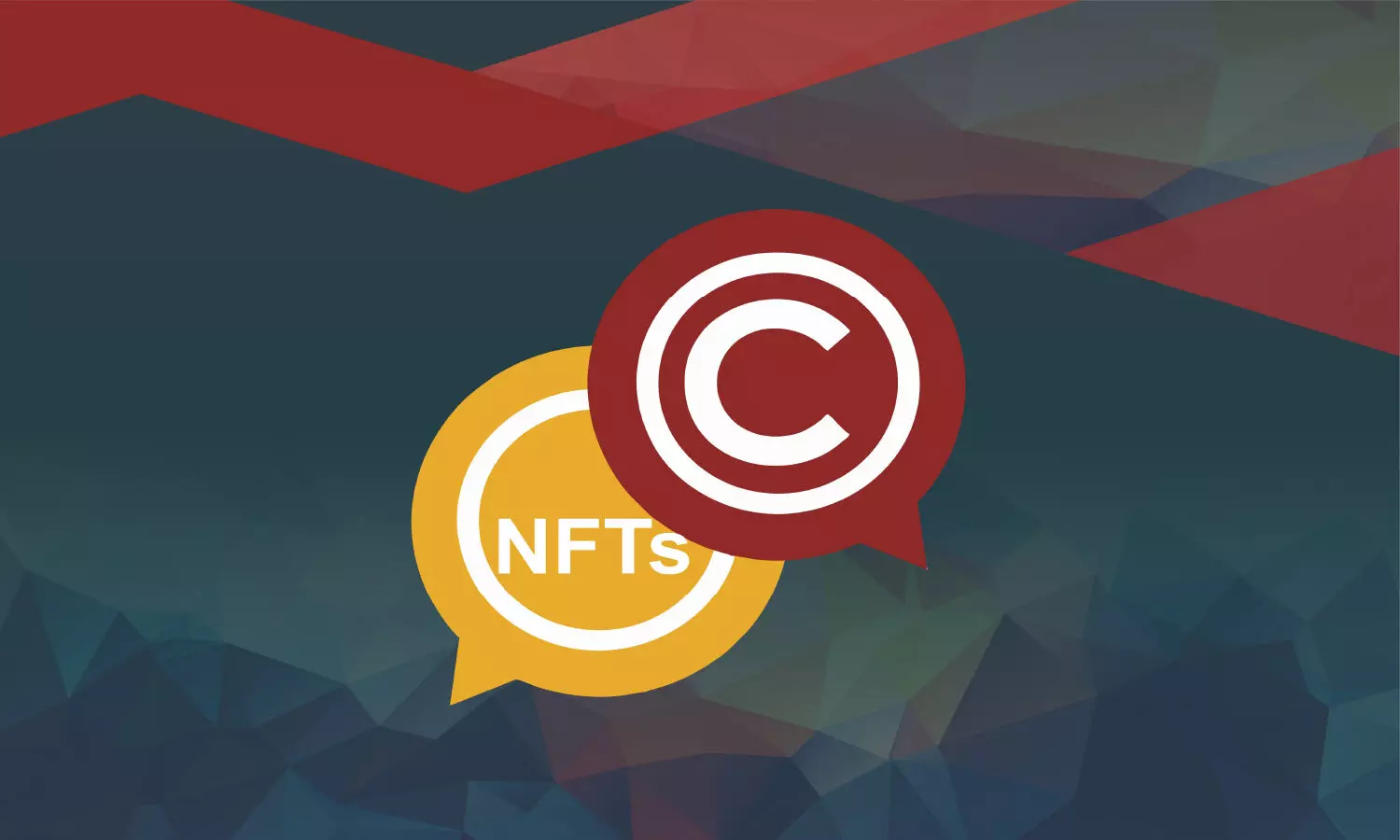- Home
- News
- Articles+
- Aerospace
- Artificial Intelligence
- Agriculture
- Alternate Dispute Resolution
- Arbitration & Mediation
- Banking and Finance
- Bankruptcy
- Book Review
- Bribery & Corruption
- Commercial Litigation
- Competition Law
- Conference Reports
- Consumer Products
- Contract
- Corporate Governance
- Corporate Law
- Covid-19
- Cryptocurrency
- Cybersecurity
- Data Protection
- Defence
- Digital Economy
- E-commerce
- Employment Law
- Energy and Natural Resources
- Entertainment and Sports Law
- Environmental Law
- Environmental, Social, and Governance
- Foreign Direct Investment
- Food and Beverage
- Gaming
- Health Care
- IBC Diaries
- In Focus
- Inclusion & Diversity
- Insurance Law
- Intellectual Property
- International Law
- IP & Tech Era
- Know the Law
- Labour Laws
- Law & Policy and Regulation
- Litigation
- Litigation Funding
- Manufacturing
- Mergers & Acquisitions
- NFTs
- Privacy
- Private Equity
- Project Finance
- Real Estate
- Risk and Compliance
- Student Corner
- Take On Board
- Tax
- Technology Media and Telecom
- Tributes
- Viewpoint
- Zoom In
- Law Firms
- In-House
- Rankings
- E-Magazine
- Legal Era TV
- Events
- Middle East
- Africa
- News
- Articles
- Aerospace
- Artificial Intelligence
- Agriculture
- Alternate Dispute Resolution
- Arbitration & Mediation
- Banking and Finance
- Bankruptcy
- Book Review
- Bribery & Corruption
- Commercial Litigation
- Competition Law
- Conference Reports
- Consumer Products
- Contract
- Corporate Governance
- Corporate Law
- Covid-19
- Cryptocurrency
- Cybersecurity
- Data Protection
- Defence
- Digital Economy
- E-commerce
- Employment Law
- Energy and Natural Resources
- Entertainment and Sports Law
- Environmental Law
- Environmental, Social, and Governance
- Foreign Direct Investment
- Food and Beverage
- Gaming
- Health Care
- IBC Diaries
- In Focus
- Inclusion & Diversity
- Insurance Law
- Intellectual Property
- International Law
- IP & Tech Era
- Know the Law
- Labour Laws
- Law & Policy and Regulation
- Litigation
- Litigation Funding
- Manufacturing
- Mergers & Acquisitions
- NFTs
- Privacy
- Private Equity
- Project Finance
- Real Estate
- Risk and Compliance
- Student Corner
- Take On Board
- Tax
- Technology Media and Telecom
- Tributes
- Viewpoint
- Zoom In
- Law Firms
- In-House
- Rankings
- E-Magazine
- Legal Era TV
- Events
- Middle East
- Africa

Copyright and Non-Fungible Tokens (NFTs)
Copyright and Non-Fungible Tokens (NFTs)

COPYRIGHT AND NON-FUNGIBLE TOKENS (NFTS) Looking ahead, NFTs are likely to stay and thus the grey areas should be dealt with expediently to avoid a lacuna in the law In 2021, NFTs have emerged as a new trend with tremendous popularity across the world. Lionel Messi and Justin Bieber are among the celebrities who have joined the NFTs trend, including major brands such as Adidas, Coca-Cola,...
To Read the Full Story, Subscribe to Legal Era News
Access Exclusive Legal Era Stories, Editorial Insights, and Expert Opinion.
Already a subscriber? Sign in Now
COPYRIGHT AND NON-FUNGIBLE TOKENS (NFTS)
Looking ahead, NFTs are likely to stay and thus the grey areas should be dealt with expediently to avoid a lacuna in the law
In 2021, NFTs have emerged as a new trend with tremendous popularity across the world. Lionel Messi and Justin Bieber are among the celebrities who have joined the NFTs trend, including major brands such as Adidas, Coca-Cola, and Louis Vuitton. As it stands, the NFTs trend does not seem to be slowing down any time soon.

What are NFTs?
NFTs which stand for non-fungible tokens, are non-interchangeable units of data stored on a blockchain, a form of digital ledger. An NFT is "minted" from digital objects which can include art, videos, photographs, collectibles, or music.
One of the more common forms of NFTs is the Ethereum ERC-721 token, which contains a metadata file with details of the digital object it is associated with. For example, if an NFT is minted from a digital JPEG art, the NFT metadata would contain information which identifies the JPEG art, either by the description of the art or a link which points to where the JPEG art is located.
More importantly, the metadata contains a combination of token ID (generated when the token is created) and the contract address (the blockchain address) which makes the token unique and hence non-fungible. Due to their non-fungibility, NFTs are perceived to have the ability of proving the ownership of the digital object which they represent, allowing NFTs to be commercialized through sale of the NFTs. Notable sales include the sale of an NFT from the Bored Ape Yacht Club collection at US $2.7 million1 and the sale of the NFT of the digital collage "Everydays: The First 5,000 Days" by Beeple at $69.3 million.2
Copyright and NFTs
The explosive hype around NFTs is not without issues and one of the more prominent issues relates to copyright. Some buyers were under the impression that the purchase of the NFT minted from a work will result in the copyright in the work being vested in them. Unfortunately, this is not necessarily the case.
Under section 26 of the Malaysian Copyright Act 1987 ("CA"), copyright shall vest initially in the author. Section 2 of the CA defines an "author", where it provides, among other, that an author of a literary work refers to the writer or the maker and that an author of artistic works other than photographs refers to the artist. In the case of NFTs, the buyers are typically not the authors of the underlying work and hence copyright will not vest in the buyers by virtue of authorship.
It is not disputed that copyright is transferable as a movable property, as this is provided by section 27 of the CA. Thus, while the author initially owns the copyright, the copyright may be owned by another individual or entity subsequently either by way of sale or operation of law.
In the case of NFTs, the purchaser usually buys the token (containing the metadata of the underlying work) but not the work itself. Thus, what the purchaser owns after a sale of an NFT would be the token only, unless specified otherwise. As a result, the copyright in the work would remain with the original owner, subject to any agreements to the contrary.
No doubt, this issue of ownership may be varied by contracts entered between the parties. The seller and purchaser of an NFT may reach an agreement that the copyright is transferred upon the sale of the NFT. This is however possible only if the seller of the NFT is the copyright owner of the underlying work, as the classic rule of "you cannot give what you do not have" (nemo dat quod non habet) will remain applicable.
The other copyright dimension to NFTs is from an infringement angle. As NFTs can be minted from a digital asset by almost everyone, there is a possibility that the individual who mined (and consequently sold) the NFT is not the rightful owner of the underlying work. Major NFTs' marketplaces have been shut down in recent months, as a big number of the NFTs offered were either plagiarized works or minted from digital assets without the consent of the original owners.3
"The explosive hype around NFTs is not without issues and one of the more prominent issues relates to copyright."
Under section 36 of the CA, copyright is infringed by any person who does, or causes, any other person to do, without the licence of the owner of the copyright, an act the doing of which is controlled by copyright under the CA. Examples of acts referred to in section 36 include reproduction of literary, musical, or artistic works etc. in any material form as well as the communication of such works to the public.
Putting this in the context of NFTs, the mere act of minting or selling an NFT of a copyrighted work may not amount to copyright infringement. This is because what was being minted or sold is technically the metadata file of the work, without any dealings being done in respect of the work itself. The legal position may be different if there is a clear reproduction of the copyrighted work, for example if the seller reproduces the copyrighted work on the sale listing of the said NFT. In such instances, the act of reproduction by the NFT seller may amount to copyright infringement in Malaysia.
Conclusion
The advent of technology has always been an impetus for the growth of copyright laws. As technology continues to revolutionize the creation and exploitation of copyright, lawmakers need to be creative in exploring better ways to address the novel issues. Looking ahead, the NFTs are likely to stay and thus the grey areas as highlighted above should be dealt with expediently to avoid a lacuna in the law.
2 https://www.investopedia.com/most-expensive-nfts-2021-5211768#:~:text=The%20most%20expensive%20NFT%20is,of%20the%20most%20expensive%20NFTs.
Disclaimer – The views expressed in this article are the personal views of the authors and are purely informative in nature.


